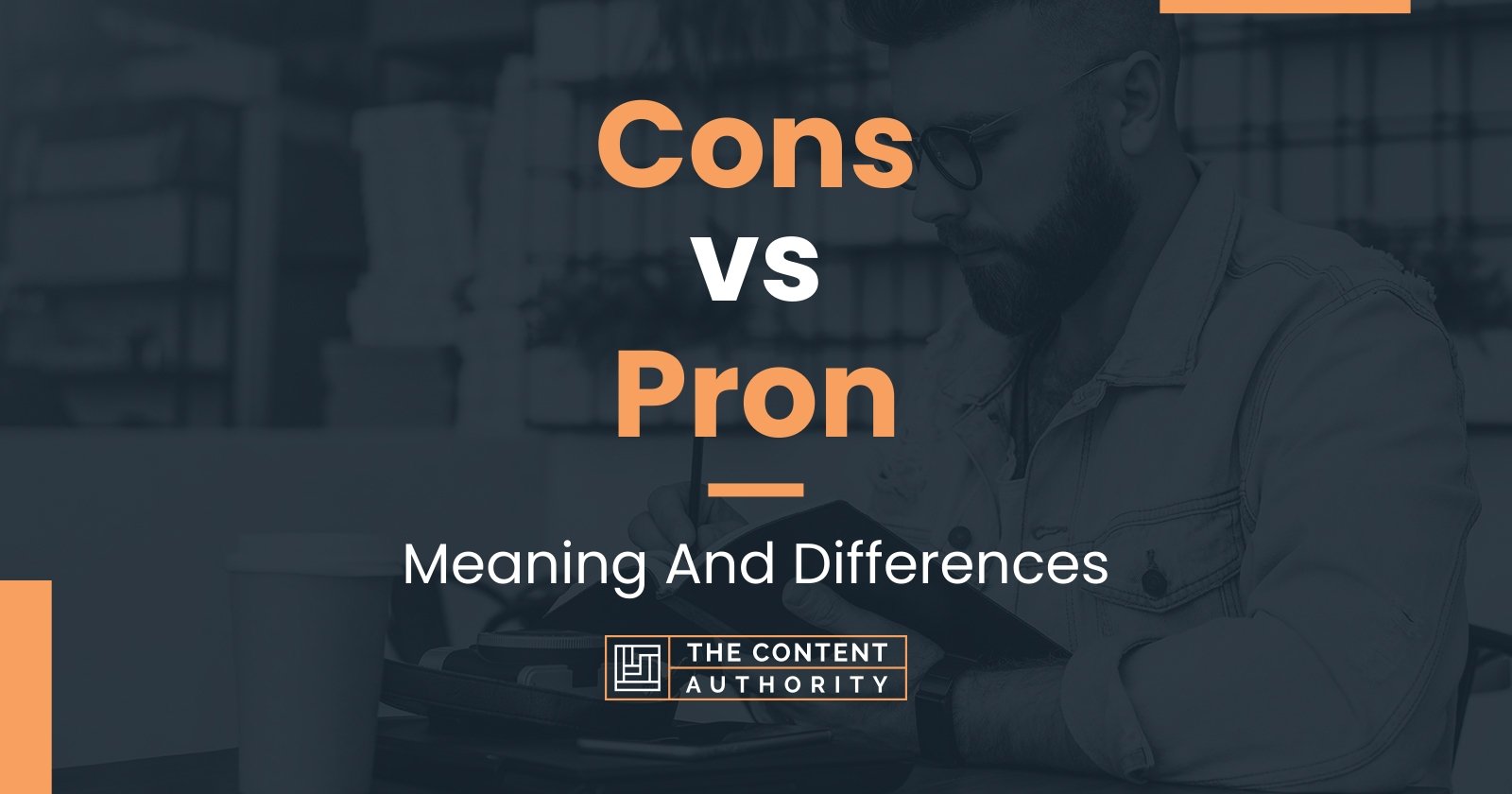So, here we are talking about pronouns—those little words that pack a serious punch in our daily conversations. Pronouns might seem small, but they're like the MVPs of language, doing all the heavy lifting without asking for much credit. Whether you're diving into grammar or just trying to make sense of how we refer to people, places, or things, pronouns are the unsung heroes of communication. Let's get into it, shall we?
In today's world, understanding pronouns goes beyond just knowing "he" or "she." It's about recognizing the importance of identity and respect, which makes this topic more relevant than ever. Whether you're brushing up on your grammar skills or learning about the evolving landscape of language, pronouns play a huge role in shaping how we interact with each other.
Now, before we dive deeper, let's clarify something: this isn't just about grammar rules. This is about building bridges, fostering understanding, and making sure everyone feels seen and heard. So grab a coffee, sit back, and let's explore the fascinating world of pronouns together.
Read also:Jameliz Benitez Smith Profession Unveiling The Inspiring Journey
Here's a quick table of contents to help you navigate through this article:
- What is a Pronoun?
- Types of Pronouns
- Gender-Neutral Pronouns
- Using Pronouns Correctly
- Pronouns and Identity
- Common Mistakes with Pronouns
- The History of Pronouns
- Why Pronouns Matter
- Tips for Using Pronouns in Everyday Life
- Wrapping It Up
What is a Pronoun?
A pronoun is like a stand-in for a noun. Think of it as the backup singer who steps in when the lead singer needs a break. Instead of repeating the same name or noun over and over, pronouns help keep sentences smooth and concise. For example, instead of saying "John went to the store and John bought apples," you can say "John went to the store and he bought apples." See how much easier that is?
Pronouns come in different flavors, and each one serves a unique purpose. Some refer to people, others to things, and some even to ideas. They're like the Swiss Army knives of language, versatile and ready to adapt to whatever situation they're in.
Why Are Pronouns Important?
Pronouns are more than just grammatical tools. They're a way of showing respect and acknowledging someone's identity. In today's world, where inclusivity is key, using the right pronouns can make a huge difference in how people feel seen and valued. It's not just about grammar—it's about building connections and fostering understanding.
Types of Pronouns
Now that we've got the basics down, let's dive into the different types of pronouns. There's a whole family of them, and each one has its own job to do. Here's a quick rundown:
- Personal Pronouns: These are the ones you're probably most familiar with, like "I," "you," "he," "she," and "they." They refer to specific people or things.
- Possessive Pronouns: Think "mine," "yours," "his," "hers," and "theirs." These show ownership or possession.
- Reflexive Pronouns: Words like "myself," "yourself," and "themselves" are used when the subject and object of a sentence are the same.
- Demonstrative Pronouns: These include "this," "that," "these," and "those," and they point to specific things.
- Interrogative Pronouns: Questions? We've got pronouns for that too. Words like "who," "what," "which," and "whose" help us ask questions.
Which Type Should You Use?
Choosing the right type of pronoun depends on the context and what you're trying to say. For example, if you're talking about yourself, you'd use "I" or "me." If you're referring to something that belongs to someone else, you'd use a possessive pronoun like "his" or "hers." It's all about matching the pronoun to the situation.
Read also:Kellie Carter Onlyfans Leak The Untold Story You Need To Know
Gender-Neutral Pronouns
Let's talk about something that's gaining more attention these days: gender-neutral pronouns. These are pronouns that don't specify gender, making them a great option for people who don't identify as strictly male or female. The most common one you'll see is "they/them," but there are others like "ze/zir" and "xe/xem."
Using gender-neutral pronouns isn't just a trend; it's a way of acknowledging that gender isn't always binary. It's about creating a more inclusive language that reflects the diversity of human experience. And let's be real, it's not that hard to get used to. Just think of "they" as a singular pronoun, and you're good to go.
How to Use Gender-Neutral Pronouns
Using gender-neutral pronouns is pretty straightforward. Just swap out the traditional "he" or "she" for "they" or another preferred pronoun. For example, instead of saying "Alex went to the store, and he bought milk," you could say "Alex went to the store, and they bought milk." Simple, right?
Using Pronouns Correctly
Now that we've covered the basics, let's talk about how to use pronouns correctly. It's not just about knowing what they are; it's about using them in the right way to make your sentences clear and effective.
One of the biggest mistakes people make is using the wrong pronoun case. For example, saying "Me and my friend went to the store" instead of "My friend and I went to the store." See the difference? The correct pronoun case makes a big impact on how your sentence sounds.
Common Pronoun Case Mistakes
Here are a few common mistakes to watch out for:
- Using "I" when you should use "me." Example: "John and I went to the store" is correct, but "The store gave John and I a discount" is not.
- Confusing "who" and "whom." "Who" is used as the subject, while "whom" is used as the object. Example: "Who went to the store?" vs. "Whom did you see at the store?"
- Using reflexive pronouns incorrectly. Reflexive pronouns like "myself" should only be used when the subject and object are the same. Example: "I treated myself to a nice dinner" is correct, but "My friend and myself went to the store" is not.
Pronouns and Identity
Pronouns are deeply tied to identity, especially in today's world where people are more open about who they are. Using someone's preferred pronouns is a sign of respect and acknowledgment of their identity. It's like saying, "I see you, and I respect who you are."
Respecting someone's pronouns isn't just about grammar; it's about creating a safe and inclusive environment. It's about letting people know that their identity matters and that they're valued for who they are.
How to Respect Someone's Pronouns
Respecting someone's pronouns starts with asking and listening. If someone tells you their pronouns, use them. If you're not sure, it's okay to ask politely. And if you make a mistake, don't panic—just correct yourself and move on. It's all about showing that you care and are willing to learn.
Common Mistakes with Pronouns
Even the best of us make mistakes with pronouns from time to time. Whether it's using the wrong case or misgendering someone, these mistakes can happen. The key is to learn from them and do better next time.
One common mistake is assuming someone's pronouns based on their appearance or name. This can be hurtful and disrespectful, so it's always better to ask if you're not sure. Another mistake is using outdated or offensive terms, which can alienate people and create barriers.
How to Avoid Pronoun Mistakes
Here are a few tips to help you avoid pronoun mistakes:
- Ask people about their pronouns if you're unsure.
- Practice using different pronouns in everyday conversations.
- Stay updated on language trends and changes in pronoun usage.
- Apologize sincerely if you make a mistake and commit to doing better.
The History of Pronouns
Pronouns have been around for a long time, evolving alongside language and culture. From Old English to modern-day English, pronouns have changed to reflect the needs and values of society. For example, the singular "they" wasn't always widely accepted, but over time, it's become a staple in inclusive language.
Understanding the history of pronouns can give us insight into how language shapes our world. It shows us that language is fluid and adaptable, always changing to meet the needs of the people who use it.
Key Moments in Pronoun History
Here are a few key moments in the history of pronouns:
- The introduction of "they" as a singular pronoun in the 14th century.
- The rise of gender-neutral pronouns in the 20th century.
- The increasing acceptance of non-binary pronouns in modern times.
Why Pronouns Matter
Pronouns matter because they're a reflection of how we see and treat each other. They're a way of showing respect and acknowledging someone's identity. In a world where diversity and inclusion are more important than ever, pronouns play a crucial role in building understanding and connection.
Using the right pronouns can make someone feel seen and valued, while using the wrong ones can cause harm and create distance. It's about creating a language that reflects the world we live in—one that's diverse, inclusive, and respectful of everyone.
How Pronouns Impact Our Lives
Pronouns impact our lives in ways we might not even realize. They shape how we communicate, how we see ourselves, and how we interact with others. By using pronouns correctly and respectfully, we can create a world where everyone feels valued and respected.
Tips for Using Pronouns in Everyday Life
So, how can you start using pronouns more effectively in your everyday life? Here are a few tips to get you started:
- Introduce yourself with your pronouns to normalize the practice.
- Ask others about their pronouns in a respectful and non-intrusive way.
- Correct yourself and others when mistakes are made, but do so kindly.
- Stay informed about pronoun usage and trends in language.
Making Pronouns a Part of Your Daily Routine
By incorporating pronouns into your daily routine, you can help create a more inclusive and respectful environment. It's about making pronouns a natural part of conversation, rather than something that feels forced or awkward.
Wrapping It Up
So there you have it—a deep dive into the world of pronouns. From their history to their importance in modern-day language, pronouns play a crucial role in how we communicate and connect with each other. Whether you're brushing up on your grammar skills or learning about the evolving landscape of language, pronouns are a key part of the conversation.
Remember, using the right pronouns isn't just about grammar—it's about respect, inclusivity, and creating a world where everyone feels valued. So go out there, practice using pronouns correctly, and help make the world a little bit better, one word at a time.
And don't forget to share this article with your friends and family. The more people understand the importance of pronouns, the better off we'll all be. Let's


